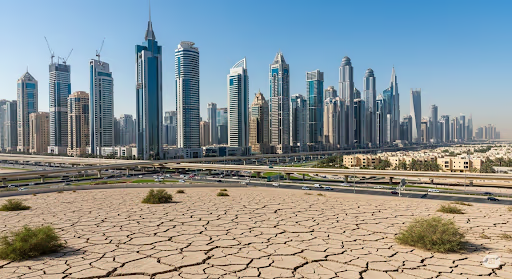Water Scarcity Threatens Economic Growth in the Gulf Amid Diversification
- July 18, 2025
- 0

The Gulf Cooperation Council (GCC) countries are undergoing a significant economic transformation. Traditionally reliant on oil revenues, these nations are now focusing on diversifying their economies. Sectors such as tourism and finance are emerging as key drivers of growth, with projections indicating a 4-5% increase in GDP by 2025-26. This shift is part of a broader strategy to reduce dependence on oil and create more sustainable economic models.
Despite these positive economic trends, the GCC faces a severe challenge: water scarcity. The region’s arid climate and limited freshwater resources make it particularly vulnerable to water shortages. Without immediate and effective action, this scarcity could lead to substantial GDP losses, undermining the economic gains from diversification efforts. The threat of water scarcity is not just an environmental issue but a significant economic concern that could impact the region’s long-term prosperity.
To mitigate the risks associated with water shortages, GCC countries must prioritize efficiency improvements in water usage. Sustainable desalination technologies offer a promising solution, allowing for the conversion of seawater into potable water without depleting natural resources. Additionally, regional cooperation is essential. By working together, GCC nations can share resources, technologies, and strategies to combat water scarcity effectively.
Addressing water scarcity is crucial for ensuring the long-term prosperity of the Gulf region. As these countries continue to diversify their economies, securing a reliable water supply will be vital for supporting new industries and maintaining economic stability. The success of these efforts will depend on the ability of GCC nations to implement innovative solutions and collaborate on a regional scale.